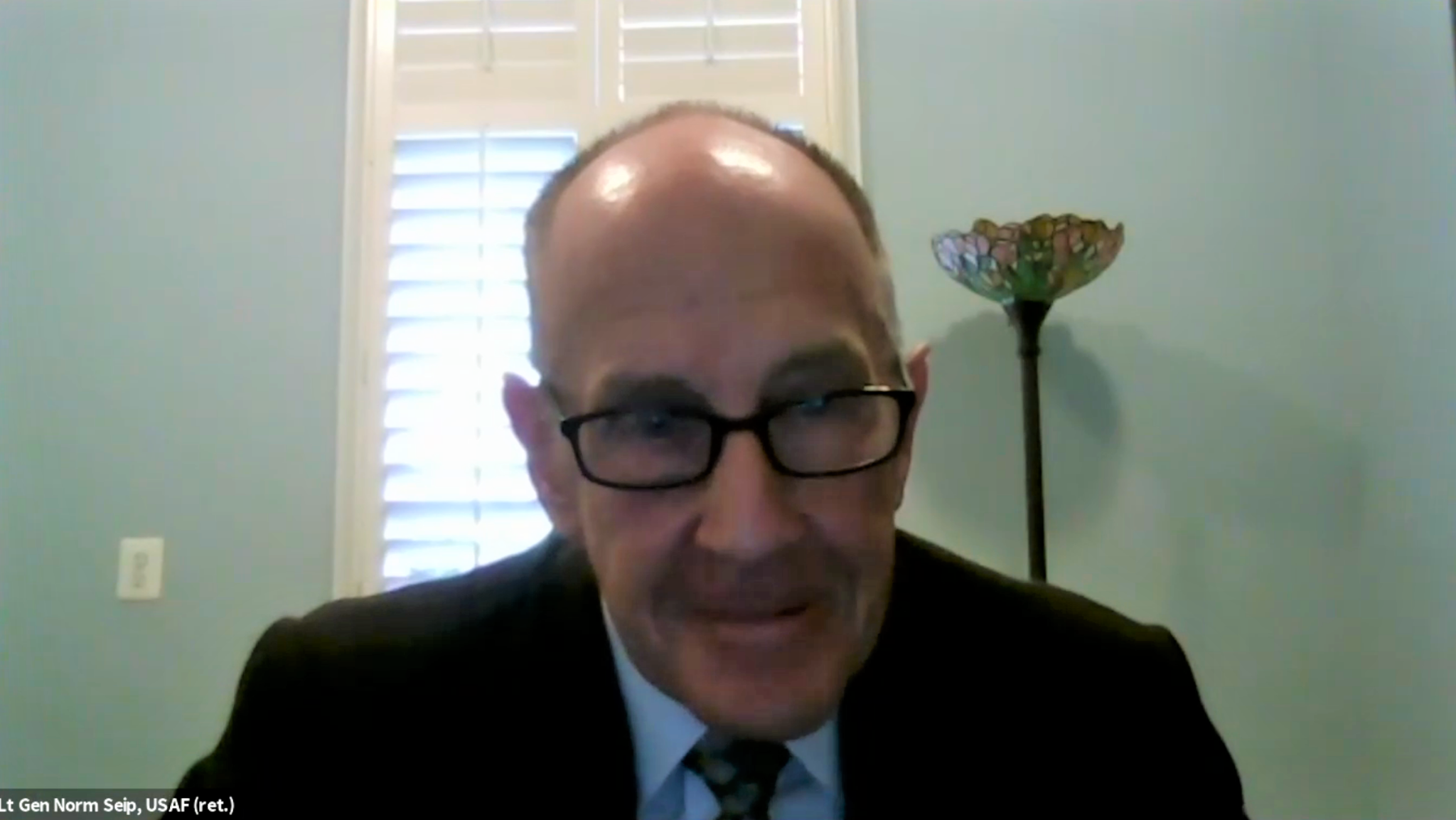 DoD Photo By: Christopher Gardner
DoD Photo By: Christopher Gardner
Event Recap: National Security Implications of Climate Change in Florida
On April 7, the American Security Project (ASP) hosted an event on the national security implications of climate change in Florida. This is the first event of ASP’s intensive new program to focus on climate security threats in Florida. Lieutenant General Norm Seip USAF (Ret.) gave the presentation while ASP COO Andrew Holland moderated the discussion and introduced ASP’s partner for this event, the American Water Security Project (AWSP).
Lt. Gen Seip began by asserting that climate change is a real threat to national security. The threats facing Florida’s military installations include rising sea levels, worsening storms, flooding, and drought. In 2018, Hurricane Michael severely damaged 95 percent of the infrastructure at Tyndall Air Force Base (AFB), which disrupted critical training and maintenance for almost a month. Experts expect it will take years to rebuild and cost over $3 billion. If current trends continue, low-lying areas of Eglin AFB may be underwater for as much as 80 percent of the year by 2100.
Next, Seip discussed the climate-induced security risks abroad: “we know that problems around the world don’t stay there,” said Seip. “For these reasons the military calls climate change an ‘accelerant of instability’ and a ‘threat multiplier.’ To illustrate his point, Lt. Gen Seip listed two examples that affect the U.S.
First, the Himalayas are the home to the headwaters of six major Asian rivers—the Indus, Ganges, Brahmaputra, Irrawaddy, Salween, and Mekong. Increasing Himalayan glacial melt and changing monsoon rainfall patterns pose a threat to livelihoods and food and water security for more than a billion people in South Asia. China’s control over the source of these major rivers gives it a power and the means to extend its influence in the region. As such, climate risks in South Asia could destabilize allies, like the world’s largest democracy India, and invite further Chinese intrusion.
Second, nations in Latin America are increasingly vulnerable to climate change. Natural disasters and persistent drought have the potential to induce instability and may become more susceptible to influence from transnational crime networks and further intrusion by China and Russia.
Seip then discussed risk management, the military’s solution to an uncertain future and impending threats.
“During my three decades in the military, we assessed threats and recommended action against those threats. Every aspect of national security is about managing risk. Waiting for 100% certainty on the battlefield can result in disaster. There is enough of a consensus that we should act on climate change,”
– Lt Gen Seip USAF (Ret.)
Finishing his presentation, Seip warned that we cannot afford to ignore the risks of a changing climate, and he called on the U.S. to reduce future risk by reducing carbon emissions: “We [the U.S. military] don’t always get it right but we are willing to put our shoulder against the issue.” In closing, he said, “time is no longer on our side.”
During his response to a question about Tyndall AFB, Seip noted that rebuilding is critical because of the base’s location and the training opportunities it provides. He added that the base’s air operations center avoided damage because it was built to new, more resilient standards.
A couple questions came up asking how bases can become more resilient to rising seas and how they can plan for future uncertainties. “There is no silver bullet,” said Seip, “we must stop the temperature rise and combatant commanders must look at how climate change affects their plans.” This question fed the next one about competing priorities: when faced with competing priorities, how can one make the case that investments in resilience are critical? The answer, according to Seip, involves changing how the military views needs and risk: national, energy, economic, and environmental security should be considered when analyzing risk. “An ounce of prevention is worth a pound of cure,” noted Holland.
Holland closed the event by asking Seip to comment on the bigger picture. In response, Seip noted “We have to listen to each other. Democracy is a team sport, many times it’s a contact sport. You’ve got to roll up your sleeves and get involved.”
Watch the full recording here:
Additional Resources from the American Security Project:
American Security Project: Military Base Resilience
American Security Project: Climate Security
Perspective – National Security Implications of Climate Change in Florida
The US or China: Who is the better bet?
The Ebbs and Flows of the Renaissance Dam Dispute
East Africa’s Looming Climate Catastrophe
A Deep Dive Into Climate Security with Dr. Katharine Hayhoe






